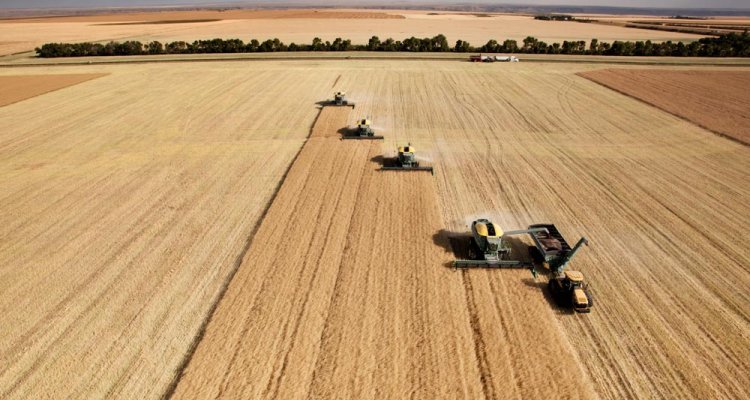
News
Global Forum for Innovations in Agriculture
The Global Forum for Innovations in Agriculture (GFIA) is presenting itself to the outside world as ‘the world's award-winning sustainable agriculture event’. With 40 ministerial delegations and numerous top figures from the agrifood world, this trade fair and conference is guaranteed to feature many innovations in a wide range of fields. As an innovation partner, Wageningen UR is involved in the conference organisation and the focus is on important topics such as edible cities, food waste, efficient water use and climate-resilient agriculture.
Food waste
More than one third of the food produced is not consumed, but is wasted. In close collaboration with organisations at home and abroad Wageningen UR is working on reducing food losses. This involves not only reducing the food that consumers throw away (the main cause in western countries), but also techniques for the harvest, storage and transport of products. Wageningen UR is coordinating the Postharvest Network that supports entrepreneurs in the search for the right technology and solutions for their specific products. Other countries are also often interested in the Dutch experience in setting up an efficient agro-logistics network. Another important way to prevent food wastage is to make use of residual flows and food losses. Not everything on a tomato plant is edible, but the pulp from the stalks and leaves can be used to make containers to transport the tomatoes. Food remains can also be converted into animal feed, so there are numerous examples of the reuse of residual flows.
Edible cities
More than half the world’s population lives in the city and it is expected that this percentage will increase even further to 70%. To continue providing the city of the future with food, work is being carried out on methods and systems that incorporate existing horticultural knowledge. Dutch horticulture plays a leading role in this. Systems such as vertical agriculture, ‘indoor’ systems and roof top gardens are generally based on horticultural methods. LED lamps, exact supply of the required elements such as water and nutrients and efficient energy programmes – all these enable the setting up of sustainable systems that supply food for the inhabitants of the city of the future.
Water
More than 40% of agriculture is irrigated worldwide. With current water consumption and the growing world population water shortage will become an ever greater problem. Water shortage is a problem in agriculture too and the acreage struggling with salinization is increasing all the time (6% worldwide, but up to 40% in specific dry areas). Researchers in Wageningen are looking not only for more efficient water consumption, but are also studying water as an element in much larger systems. Each region requires its own specific solution with different systems, crops, irrigation methods, water pollution and purification, etc. In the search for a good solution the focus is on the potential of the potato as this crop is playing an increasingly important role in global food supply. Moreover, the potential of potato production in saline environments is very promising.
The Global Forum on Innovation in Agriculture will be held in Abu Dhabi from 9 to 11 March. You can register on the GFIA website.
- De Global Forum on Innovation in Agriculture is van 9 tot 11 maart in Abu Dhabi. Opgeven kan via de website van GFIA, http://www.innovationsinagriculture.com